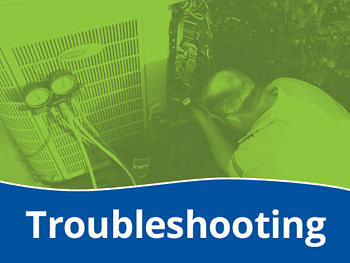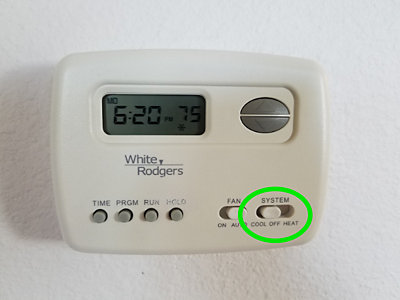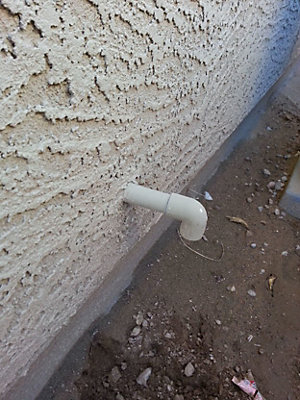What To Do When Your AC Drain Line Is Clogged: A Sarasota Tech Explains

Is a clogged condensate drain line making your air conditioner leak water? You’re probably wondering how you can clear it before it causes expensive water damage to your home.
Well, to clear an AC condensate drain line, you need to:
- Turn off your air conditioner (if it doesn’t automatically)
- Find your condensate drain line access and runoff
- Remove the clog using a wet/dry vac
The whole process shouldn’t take you more than 5 minutes. Here’s what you’ll need:
- Wet/dry vac
- Duct tape or cloth towel
Need a Florida AC tech to repair your air conditioner ASAP?
Schedule an appointment
Now, we’ll walk you through how to clear your condensate drain line.
Step #1: Turn off your AC
If your air conditioner doesn't automatically shut off because of the clogged condensate line (some newer models do), turn off your system. If you don’t, your system will continue to run and drain water, flooding your drain pan even more and getting in the way while you’re trying to clear the clog.
To turn off your air conditioner, all you have to do it switch your thermostat from COOL to OFF.

Step #2: Find your AC condensate drain line access and runoff
Every central AC has a condensate drain line that runs from the indoor air handler to outside your home. This line expels the water your air conditioner pulls from your home’s air to dehumidify it.
You’ll need to know the location of both your condensate drain line runoff and access to clear the clog.
To find your condensate drain line:
- Access, look for a vertical PVC pipe with a cap near your indoor air handler.
- Runoff, check for a PVC pipe located near your outdoor unit.

AC condensate drain line runoff
Step #3: Remove the clog
Once you’ve located your drain line runoff:
- Attach the wet/dry vac hose to the end of the drain line.
- Wrap the duct tape or cloth towel around the vacuum mouth to make the connection to the drain line airtight (it won’t remove the clog otherwise).
- Run the vacuum for 1–2 minutes and then switch it off.
- Open the vacuum to make sure you removed what was clogging your line. If you see a lot of algae (brown-colored) water, you likely removed the clog.
If there’s nothing in the vacuum, repeat steps 3 and 4 until the clog is removed. You can also try pouring a ¼ of a cup of white distilled vinegar (hydrogen peroxide or hot water and a bit of dish soap will also work) down the drain line access and let it sit for 30 minutes. That will help break down the clog and make it easier to vacuum out.
How to prevent a clogged AC condensate line
Want to prevent your condensate drain line from clogging again?
Before the cooling season hits, pour a cup of bleach down the condensate line access opening. This will kill mildew and algae (the most common cause of condensate line clogs) and prevent them from growing inside your drain line.
Need a Florida AC pro to unclog your condensate drain line?
We serve communities across and Florida and will send one of our trusted AC techs to clear the clog and get your system back up and running.
Also, ask us about installing a float switch on your AC (if it doesn’t already have one). That way, your unit will automatically shut off if a clog causes water backup, saving you from costly water damage.